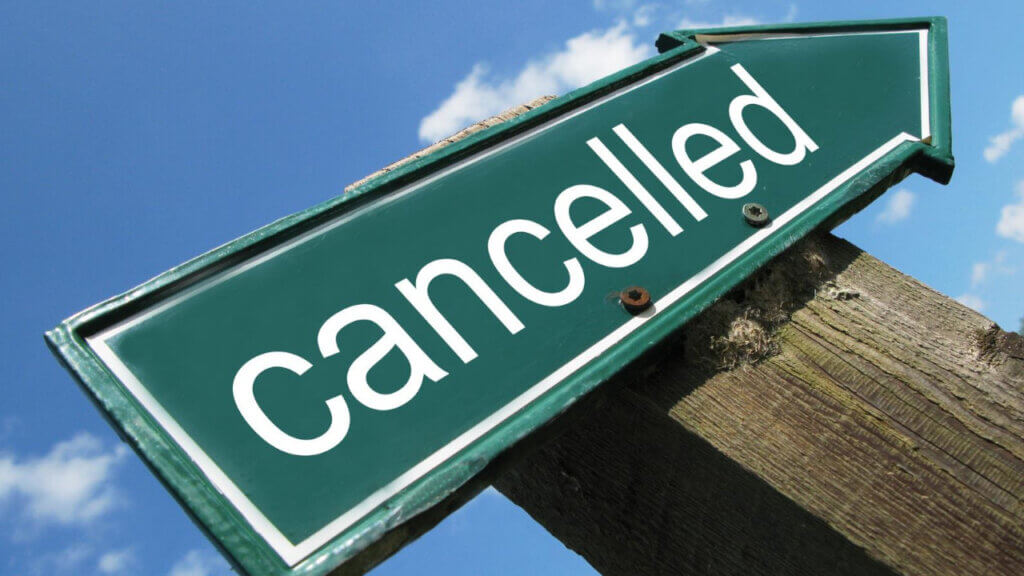
Without a doubt, one of the most challenging things about running a hotel is the tendency for guests to make a reservation but then frustratingly cancel at the last minute.
NB: This is an article from Avvio
Given the current climate we are all facing, there are multiple reasons why travellers and guests are cancelling their bookings and deciding to drop-out of their plans at the last minute. As rates rise year on year, forecasting and pricing decisions for hoteliers will continue to be undermined which magnifies inefficiencies, increases costs, and damages margins.
Subscribe to our weekly newsletter and stay up to date
In 2019, we found that the share of direct booking revenue lost due to cancellations had jumped to 15%. Now in 2022, our latest research reveals this figure has skyrocketed with 20% of bookings cancelling – a 33% increase over 2019 for the same period.
So what can hoteliers do? Below, we delve into the state of cancellations in 2022, the patterns that hoteliers need to be aware of, and the tools that can help businesses deliver a proactive booking retention game plan.
2022 state of hotel cancellations
Our latest research shows that cancellation rates have risen rapidly, with 1 in 5 (20%) of hotel bookings being cancelled, and worryingly, as we head into this time of year, it’s the summer months where we’re seeing cancellations occur the most.
We also found that couples have a higher cancellation rate than family bookings at 66.7% and 11% – perhaps there’s less to lose for those not travelling with families?
As we look back over previous years, the data shows there has been a sustained increase in cancellations at 36% from 2016 to 2019. Shockingly, the variance over is almost as big in 2022 as it has been in all pre-covid years combined. It’s obvious that the need to tackle booking cancellations now is as important as it’s ever been for many hoteliers.
What are the common cancellation trends occurring in 2022
So, what are the three most common trends impacting cancellation rates and how can you reduce them?
Trip stacking
Trip stacking is a trend that became increasingly popular as Covid-19 disrupted travel plans around the globe. Trip stacking is when travellers book two or more trips over the same time frame, and once the departure date approaches, will opt for the trip that suits their comfort level and cancel the others booked. This growing trend is likely a huge factor in the cancellation figures we’re seeing today. We found that around 42% of cancellations were triggered within 7 days of arrival. Such practices as clear cancellation policies and even collecting deposits on confirmed bookings are great methods for hotels to prevent last-minute cancellations. Communication is also key here. When it comes to trip stacking businesses are competing with each other without knowing. So how can you stay in the game? Keeping consistent and personalised touch points will help to keep your guest engaged, and for those that you consider high cancellation risks, you could offer added value with discounted or complimentary services.
Cost of living and socio-economic pressures
Despite travel increasing, the UK has been impacted drastically this year by the cost of living crisis. For hotels, we’re seeing demand beginning to dampen at a critical time when businesses are still recovering from the impact of covid. As households try to balance budgets, understandably travel is sitting lower on agendas. While it’s undetermined what impact this will have, AI can help hotels to future-proof their processes, such as analysing current and past booking consumer habits and market analysis to optimise pricing and booking options – so you can provide the best deals and offers to remain affordable.
Cancel-to-rebook
Previous attempts to encourage early pre-bookings have resulted in increased numbers of guests cancelling to rebook as post-booking costs are showing at a cheaper rate. With many OTA channels also implementing “automated cancel and rebook” strategies to offer the best deals, hotels need to update their existing strategies to retain bookings and decrease risk. For retention efforts to be effective against this as well as many other cancellation trends, hoteliers should be implementing tools to forecast cancellations by segment, giving them insight into pricing and potential overbooking strategies as well as other competitor dynamics. In doing so, you’ll have greater insights into consumer behaviours, so that you can quickly adjust to change and become more creative with cancellation policies and procedures. Advances in technology such as this means you can test and iterate to achieve optimal results.
Top Tip: You need technology on your side
Understandably as a hotelier, you can’t stop cancellations – it’s part of the business. But now technology can make it easier to understand your cancellation rate and help you make smart decisions when it comes to your strategy. With the right tools you can:
- Achieve greater consumer insight
- Understand cancellation patterns – Who, When, How, and Why
- Understand booking behaviour
- And implement effective retention strategies to maximise effectiveness
Our AI booking engine, allora.ai, works to unlock the power of data science, predictive personalisation and insightful retention functions to arm you with the tools and knowledge required to reduce booking cancellations and maximise your hotel’s booking opportunity.




